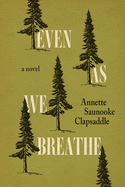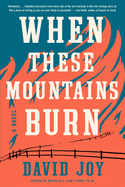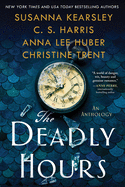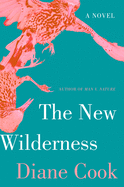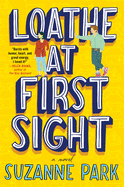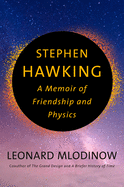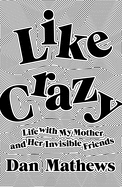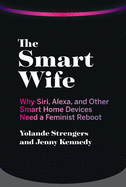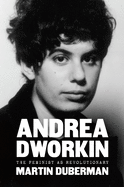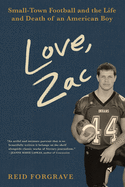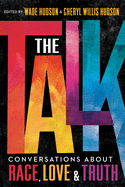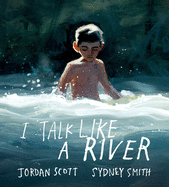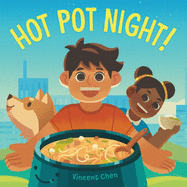 |
| (photo: Tracy Nguyen) |
Terri Cheney is the author of the bestseller Manic: A Memoir, which cataloged her life with bipolar disorder; the memoir became the basis for an episode of Modern Love on Netflix. In Modern Madness: An Owner's Manual, she draws on her own lived experience with mental illness to provide insights into the field as a whole. A former entertainment lawyer, Cheney now writes and speaks about mental illness. She lives in Los Angeles.
This is probably the first memoir I've ever read that's structured as an "owner's manual." How did that frame come to you?
I used the term "an owner's manual" as the subtitle because I thought we need to break down the concept of mental illness into something more easily understandable. And we need a vocabulary for these indefinable emotions and experiences that people with mental illness would go through. That was my initial concept. I actually had bought a vacuum cleaner and was trying to figure it all out. And I thought, "Wouldn't it be great if there was an owner's manual for mental health?" That was where the idea came to me.
The framework makes this book as useful to those who are living with a mental illness themselves as for those who love someone diagnosed with a mental illness.
It really did open up my writing because I went beyond myself and my own experiences as I thought about all these other people. Once Manic became a bestseller, I was inundated by stories from other people. And I also ran mental health support groups at UCLA's Neuropsychiatric Institute for 15 years. So I have heard a lot of stories about mental health. And I started thinking about what was universal about it and what topics could I write about that would really touch more people than just those with a diagnosis; for example, relationships and coping strategies. Bigger topics than just my own life and my own struggles.
You've talked about how writing is very therapeutic for you; was writing Modern Madness different from your past writing experiences?
Modern Madness was different from Manic.
Manic was simply writing to save my life. It began in a mental hospital when I was hospitalized at UCLA for severe depression, and I just started writing about the causes and symptoms and trying to make sense of it for my own self, because I didn't know what I was going through. And it took me seven years to eventually realize that I might have a book there.
I've been writing nonstop since then, and I write the aspects of my personal story that I think are most universal. That is how Modern Madness came about.
And it originally had a different title, did it not?
Yes, it was called Tell Me Where It Hurts. Which is still the title for one of the stories in it, one of the essays.
That phrase is sort of a cause for me. People are always asking me, "What can I do?" Their loved one is depressed, or anxious, and they don't know how to help them. They feel inept and incompetent.
And I always say to ask those five words: tell me where it hurts. Then sit back and listen. You will be amazed by how helpful that is. Just eliciting people's feelings can do wonders. Just letting some of that darkness out into the light. You feel heard and not judged. Whereas when you give advice, which is our natural human response, you feel condescended to and judged.
When you are depressed, especially, it is impossible to take advice anyway. It's enough just to move and breathe.
You wrote a little bit about the experience of receiving advice when depressed, saying it's not that you don't know what you need to do, it's an inability to do it. So the advice becomes inherently useless, right?
Correct. When I get really depressed, I suffer from something called psychomotor retardation, where you simply cannot move. Your will and your body are semi-paralyzed. It's terrifying, and it is the worst part of depression for me.
You could come up with the most brilliant elucidation of what I need to do and I would simply look at you and feel like you don't understand. But if you ask me to tell you where it hurts, then I'm able to talk about the pain. It just will lift somewhat. It will help me move. It's the best medicine I know.
And it is not easy. It is hard to listen to a depressed person. They can be very dark and say things that terrify you. It takes a lot of practice, and the heart to do it, and the knowledge that this is what will help.
Modern Madness has moments of darkness, but parts of the book are actually laugh-out-loud funny.
I hear this apology a lot from readers: "I'm sorry I was laughing at your struggles, but it was funny!" But I think it is the greatest compliment ever to hear that.
Mark Twain once said, "Humor equals tragedy plus time." Well, I have had time to sit with the stories I now write about, and I am able to stand back a little and watch them play out. And it truly is absurd that the depth of suffering can border on the absurd, because you know that your emotions are out of whack. You know that you have a mental illness. And this is not exactly how the world really is. But nonetheless, you see things in such an extreme way, and absurdity is extremity.
It speaks a little bit to another theme in the book, that so much of life is contradiction. You can't have the highs without the lows, you can't have that humor without the sadness. One complements the other, even though they seem contradictory.
There was a story I put in the book about looking at a Vermeer painting when I was feeling more recovered and seeing the shadows for the first time, in the work of this great painter of light, seeing how he handles the shadows and realizing he could not have painted the light the way that he did without articulating the shadows. And that really moved me.
If you could leave people with one thought about mental health as a whole, what would you want that to be?
I would say that mental health is universal and is as important and defining as physical health. I think we pay lip service to the notion of parity, but we haven't really reached full acceptance of that yet. And it's time. --Kerry McHugh
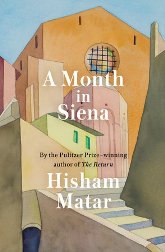 In an election year, art offers perspective. "A picture changes as you look at it and changes in ways that are unexpected. I have discovered that a painting requires time," Hisham Matar observes in his moving and perceptive memoir, A Month in Siena (Random House).
In an election year, art offers perspective. "A picture changes as you look at it and changes in ways that are unexpected. I have discovered that a painting requires time," Hisham Matar observes in his moving and perceptive memoir, A Month in Siena (Random House).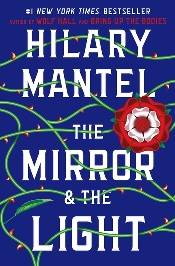 While reading Matar's book, I was also in the middle of Hilary Mantel's The Mirror & the Light (Holt). Suddenly, Thomas Cromwell, in the 16th century, recalls that in Siena, "you may see a fresco, where Good Government is set out on the wall, so that everyone can see what peace looks like. On the opposite wall, Bad Government has taken Peace by the hair. She is panicked, screaming, jerked to her knees."
While reading Matar's book, I was also in the middle of Hilary Mantel's The Mirror & the Light (Holt). Suddenly, Thomas Cromwell, in the 16th century, recalls that in Siena, "you may see a fresco, where Good Government is set out on the wall, so that everyone can see what peace looks like. On the opposite wall, Bad Government has taken Peace by the hair. She is panicked, screaming, jerked to her knees."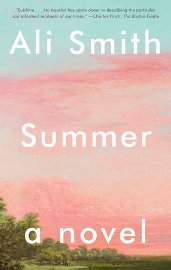 And soon after, in Ali Smith's Summer (Pantheon), a character visits Siena "for the day to see the Lorenzetti pictures in the town hall. The Good and Bad Governance.... The Good Governance wall, she says, has this perfect balance and harmony to it, which is also somehow deeply present in the fact that it's in amazing condition. Whereas the bad governance wall has deteriorated quite badly."
And soon after, in Ali Smith's Summer (Pantheon), a character visits Siena "for the day to see the Lorenzetti pictures in the town hall. The Good and Bad Governance.... The Good Governance wall, she says, has this perfect balance and harmony to it, which is also somehow deeply present in the fact that it's in amazing condition. Whereas the bad governance wall has deteriorated quite badly."


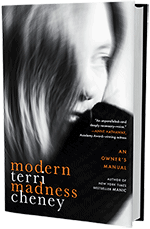


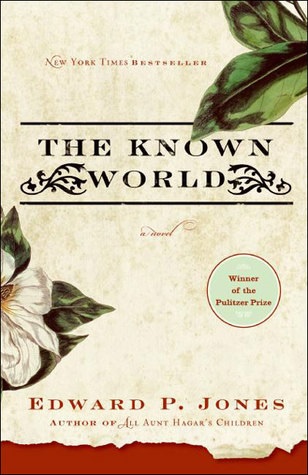 First published in 2003, The Known World by Edward P. Jones takes place in a fictional Virginia county during the antebellum era, where Henry Townsend, a mixed-race farmer and former slave, becomes the unlikely owner of a plantation and its accompanying chattel. When Henry dies, his widow is consumed by grief and slaves begin escaping the Townsend plantation under cover of night. Meanwhile the wider South roils under rumors of slave rebellions and free blacks are sold illegally into slavery--even families of slaves begin to turn against each other. An omniscient narrator weaves these threads into an intricate depiction of the institution of slavery and its destructive impacts on all levels of society. The Known World won the 2004 Pulitzer Prize for Fiction and the International Dublin Literary Award, and was a finalist for the 2003 National Book Award.
First published in 2003, The Known World by Edward P. Jones takes place in a fictional Virginia county during the antebellum era, where Henry Townsend, a mixed-race farmer and former slave, becomes the unlikely owner of a plantation and its accompanying chattel. When Henry dies, his widow is consumed by grief and slaves begin escaping the Townsend plantation under cover of night. Meanwhile the wider South roils under rumors of slave rebellions and free blacks are sold illegally into slavery--even families of slaves begin to turn against each other. An omniscient narrator weaves these threads into an intricate depiction of the institution of slavery and its destructive impacts on all levels of society. The Known World won the 2004 Pulitzer Prize for Fiction and the International Dublin Literary Award, and was a finalist for the 2003 National Book Award.